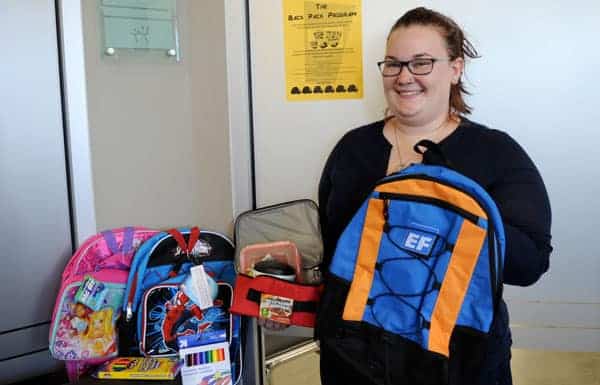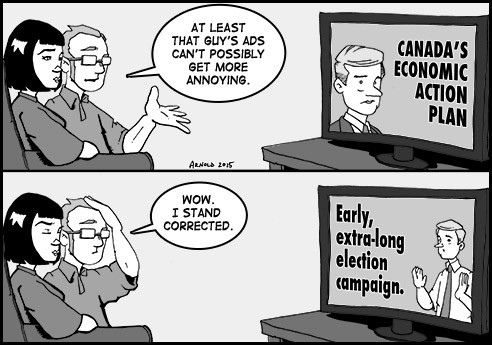With the dissolution of parliament last weekend and the federal election date officially set for October 19, political observers are calling for a wide-open race in what will become the longest campaign in some 143 years.
And while the fixed-election date was well known for some time, the fact that the Conservative government decided to make it official so early will have an impact on campaign spending, both by opposition parties who are well behind in that regard and perhaps most importantly, third-party political groups like unions who will now be subject to strict limits.
“In a sense it almost doesn’t matter because the election campaign was on anyhow,” Wilfrid Laurier political science professor Barry Kay said. “The October 19 date was set long ago in legislation, and while I guess (Prime Minister Stephen Harper) could have chose not to observe that, there was really no question as to when the election was going to be. So the various campaigns, not just the Conservatives were working towards October 19 anyways. The fact was, the various leaders had been out and about, making speeches and doing various things, and there have certainly been lots of campaign ads before the calling of the election, or the dropping of the writ as they call it, over the weekend. … The real factor here was I think, and this isn’t a unique observation on my part, but the real factor here relates to the rules about campaign ads and who can pay for them.”
Before an election is called, he explained, third party groups – not to be confused with actual political parties – can spend freely on ads attacking parties, politicians or policy. Third parties fall all over the political spectrum, he added, but some of the biggest spenders have traditionally been left wing public sector unions who Harper would be keen to neuter.
Now, they’ll be constrained to spend a maximum of some $400,000 – typically the rule is $150,000 over a 37-day campaign, but it will be expanded in this case – which will really limit their ability to spread their message.
“Prior to the writ being dropped, it’s a free speech issue and (third parties) can buy as many ads as they have money to spend on,” Kay said. “Once the election is called, that’s off. The campaign ads are restricted to political parties, and the Conservative Party is much better funded with regard to that, so (calling the election so early) was basically a way to change the rules with respect to campaign ads. I think that is, more than any other reason, the reason why the election was called when it was.”
The impact of the protracted campaign period could be limited however, by the fact that many Canadians are less politically engaged during the summer, Kay added. Though the televised debates did begin this week with the party leaders squaring off in Toronto for the first time on August 6.
Here in Kitchener-Conestoga, campaigning has been underway for the big three parties for some time.
Incumbent Conservative MP Harold Albrecht toured through Breslau, Elmira and St. Jacobs last week doling out several federal grants to the Breslau Community Centre, the Elmira Legion, the Woolwich Memorial Centre and the Waterloo Central Railway.
Liberal candidate Tim Louis was out with party leader Justin Trudeau at the University of Waterloo on Canada Day and joined his fellow Waterloo Region Liberals at the selection of a nominee for the newly created Kitchener South-Hespeler last week.
Meanwhile, NDP candidate James Villeneuve will be at the Wellesley Community Centre for a rally on Saturday (August 8).
The local Greens have nominated Bob Jonkman.









